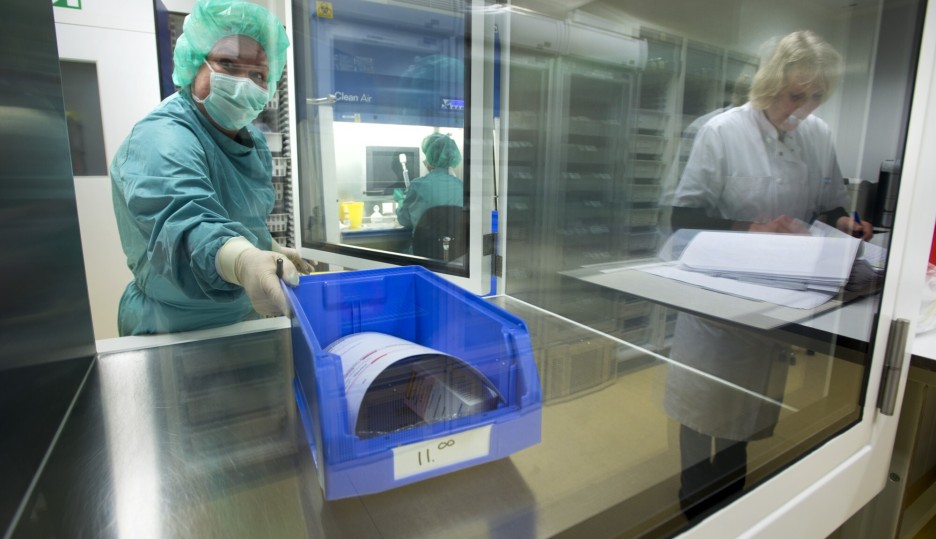Set up
The LUMC pharmacy team works closely with both CHDR and sponsors throughout the study design and execution, ensuring timelines are met and addressing any challenges. Due to its proximity to CHDR, investigational medicinal products can be prepared and delivered quickly and efficiently, even after hours to support overnight trials.
With over 100 pharmacists and support staff, the LUMC pharmacy operates two GMP-certified facilities: a GMP warehouse and fully equipped laboratories for analysing medicinal compounds. These facilities, including eight class D clean rooms, eight class C clean rooms, one class B clean room, and three additional class D clean rooms, ensure the delivery of IMPs that meet or exceed the highest quality standards.
Conduct
At CHDR, we work closely with the adjacent GMP pharmacy at Leiden University Medical Centre (LUMC). Together, we ensure the seamless management of study drugs, from receipt and storage to the preparation and release of medication, all in accordance with the sponsor’s instructions. Our pharmacy services include assisting in the creation of pharmacy manuals, organising randomisation, preparing the study drug for administration, and managing dispensing. The medication is prepared at the LUMC pharmacy and delivered to our clinical research unit by our dedicated logistics officers, ensuring it is stored under the correct conditions throughout the study.

